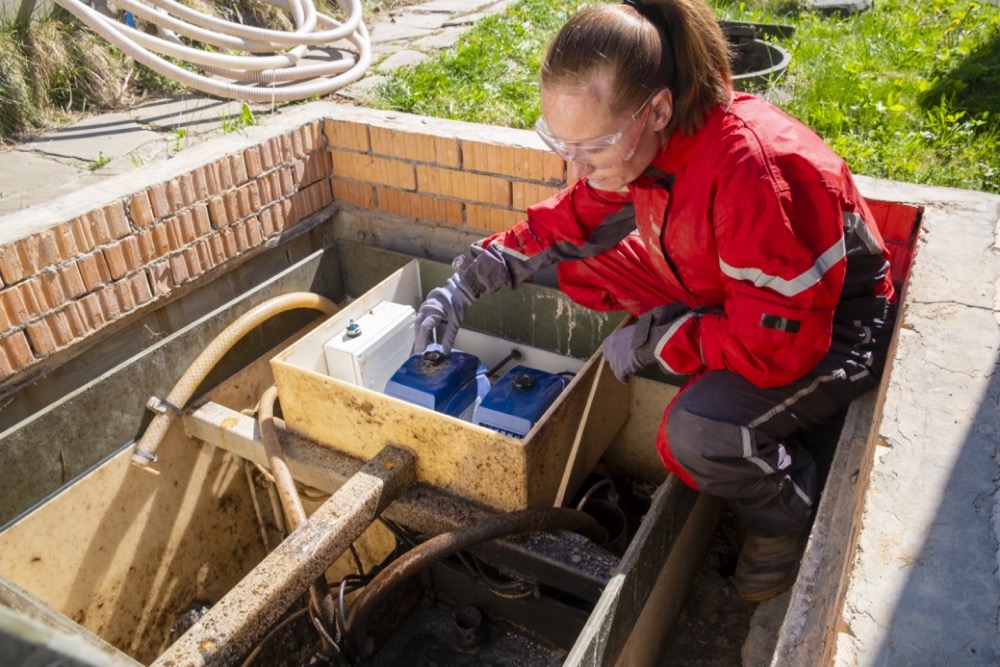
It can be a very frustrating and costly mistake not to understand all the requirements of waste disposal at your new lakefront home…especially in Massachusetts.
A. Town Sewerage
To avoid some of the problems involved with on-site septic waste disposal systems, many lakefront homeowners take advantage of connecting their homes to the municipal sewer system. Connecting to the sewer system can reduce the potential for environmental contamination and health hazards caused by old septic systems and cesspools, and offer a cost-effective alternative to systems that require pump-outs and often need expensive repairs.
To connect to town sewerage, homeowners obtain quotes for private contractors to connect their property to the sewer line/stub in the street. The work also entails a proper abandonment of the old waste system according to relevant specifications.
If the property you are looking at has town sewerage, it could be important to research town records to see that the work was completed with proper adherence to laws and regulations.
In addition, it is important to ask if there are any outstanding betterment fees and what party is responsible for paying those fees at Closing. Most of the time, this is the Seller’s responsibility. However, it can be a negotiating tool.
A sewer betterment assessment is a fee assessed by municipalities to properties that have been “bettered” by the construction of a public sewer. The value of those properties are said to have been improved and therefore, are “bettered”.
What about Septic Systems?
The purpose of a septic system is to retain solid waste in the tank and to dispose of effluent waste water into the ground without contaminating the environment.
In simplest terms, a septic system consists of a holding tank which retains solid waste and grease from household waste water, and an absorption system or “leach field” which disposes of liquid wastewater or “effluent” which leaves the septic tank for absorption below ground into soils at the property.
Typical Septic System
Properly designed and installed on-site septic systems are very functional and sanitary. Private septic systems serve more homes in the US and many other countries than any other waste disposal method. However, components can be costly and do not have an indefinite life. Therefore, there are some questions that you will want to ask.
First, the best information you can obtain is a copy of the as-built septic plan. This is usually recorded with the Town Board of Health. This plan tells you exactly where the septic system is located.
You’d probably want to know how often the septic system has been pumped and whether it has a current Title 5 Inspection.
With conventional septic systems, it is always a good idea to conserve water whenever possible. You’ll want to choose commercial drain cleaners carefully, as many may be harmful to the groundwater and to your leach field. When septic systems are not pumped routinely, the leach field may become clogged. Bleach, drain cleaners, chemicals and paints may harm beneficial microorganisms essential to the systems operation. And, as a general rule, garbage disposals cannot be used with septic systems.
Septic systems that are designed, installed, and operated properly will treat wastewater as well as any municipal sewage system. In fact, some septic systems do a much better job! The tanks will require pumping every 3 to 5 years.
Cesspools
A cesspool combines the septic treatment tank and absorption system into a single component. In its most basic and traditional form a cesspool is a hole in the ground lined with stone or concrete block to form a masonry-lined pit into which sewage is discharged. Solids (sewage from the building) remain in the pit, effluent is absorbed into soil below and at the sides of the cesspool. Cesspools as a means to dispose of sewage have been around since the late 1400’s at the beginning of the Renaissance. Cesspools require pumping every 1 to 2 years at a cost of approximately $200 to $300.
The concern with cesspools is that they may overload the capacity of the soil to remove bacteria, viruses, and phosphorous, and to nitrify ammonia and organic nitrogen compounds. Some communities will fail cesspools automatically via Title 5 regulations. Some accept them if they are functioning properly and meet other criteria. It is important to understand what you are buying.
Tight Tanks
Tight tanks are similar to septic tanks, except that they have no outlet and must be pumped out at regular intervals…usually monthly. Title 5 strongly discourages the use of tight tanks, but they are allowed in situations where an existing system has failed and there is no other feasible alternative. Tight tanks are not allowed for new construction or increases in design flow.
When purchasing a home with a tight tank, you’ll want to request copies of maintenance invoices for the last year. Then, determine the usage of your family and how that will impact those costs. Normally, tight tanks are sized from 1500 to 2500 gallons. Each pumping can cost from $175 to $250 (assuming frequency discounts).
For more information, contact Morse Engineering and Construction.
Source: lakefrontliving.com









